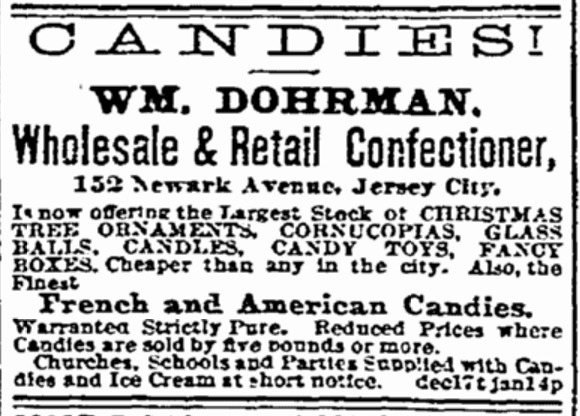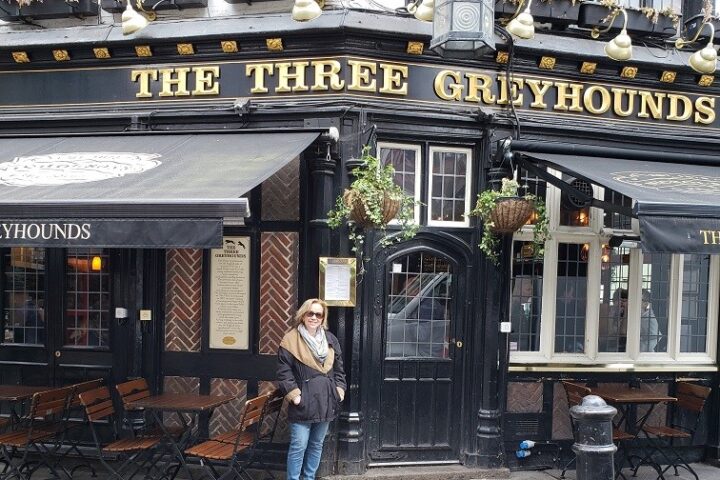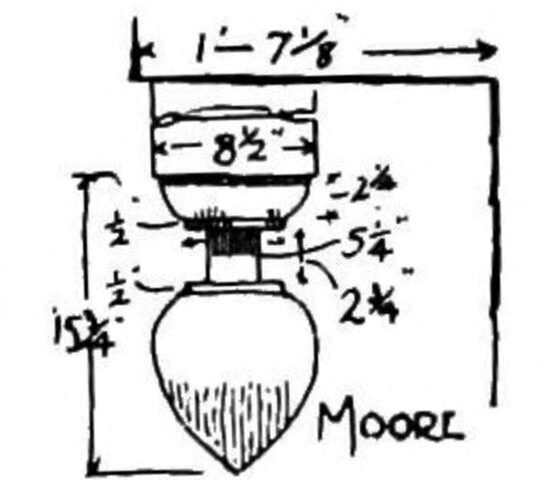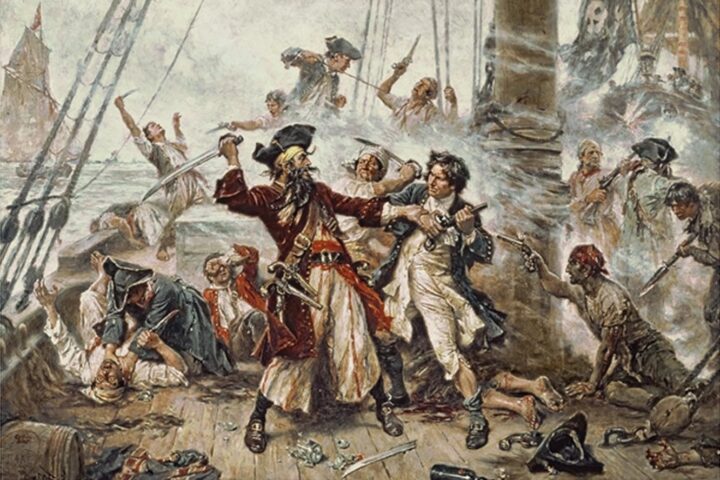{152 Newark Avenue, Jersey City, New Jersey}
Of all the celebrations in the month of June, one which may not be well known is one started in 1974, National Candy Month. No surprise that it was originally started by the National Confectioners Association. It originally was celebrated in the month of January when sales of candy dropped off after the holidays but later moved to June for some unknown reason. Before the confectionary holiday was even thought of, candy was a hot commodity no matter what day of the year it was back in the late 1800s. Candy stores were the Starbucks back in the late 19th century. It was such a prolific business that there were 275 confectioners total in Hoboken and Jersey City, New Jersey alone. It was also a very competitive business and along with competitiveness came spite.
One venomous proprietor of confectionery in Jersey City during those early days was William Dohrman, owner of 152 Newark Avenue. For many years he operated a successful business. His ads claimed he had the largest stock of Christmas tree ornaments, cornucopias, glass balls, candles, candy toys, and fancy boxes. The candies were both French and American and ice cream was a specialty. The business developed into what was then called an ice cream saloon where patrons could sit at a table and enjoy the delectables. While that may sound delightful, given the reputation of the proprietor, it is surprising the business was successful as it was because William was not a very kind man; in fact, he was a hateful man.
In 1879 his name appeared in a top column on the front page of The Evening Jersey Journal under the headline, “Color Prejudice.” The article was clear,
We did not think there was in this city a business man so ignorant of the legal rights of his fellow citizens and so narrow minded and stupid as to do what Mr. Dohrman, the proprietor of the confectionery store and ice cream saloon…did Saturday evening,
Saturday evening, an African-American pastor, William H. Griffiths, had entered the shop at 10 o’clock in the evening with his two daughters aged 16 and 19. They seated themselves at a table waiting for service, but were persistently ignored. When questioned, William Dohrman informed Mr. Griffiths that he would not serve him because, “No colored man can get anything in this saloon.” The naturally incensed Mr. Griffiths announced that he would take it up with the law. The newspaper article dug into William unrelentingly, indicating that he “will find that he has lost more friends than he has made by his insulting treatment of a highly respected clergyman, and the ladies of his family.” The hopeful sentiment of the community was that William would be made a civil rights act example. The story reached newspapers across the nation with William’s character splayed for all to see. Eventually he would get his comeuppance by none other than one of his employees.
For many years, a young man by the name of John D. Wilkens was a dedicated employee and took to learning the business during his years of employment with the hope of one day owning the business himself. The day finally arrived in 1890 when William decided to retire and 34 year old John agreed to continue the business. William drew up the lease in the amount of $2,000 a year for the first 4 years with additional payments to be made for ‘whatever additional water rent is levied.’ But despite squeezing out as much additional rent as he could, William decided that the annual rent wasn’t enough. It was then that he also learned that John had some of his own plans. The sale of property adjacent to the candy store had just been purchased by John and William was furious. John’s plan was to raze the buildings on the lot and construct a brick building complete with a huge ground level store and tenements above. Nothing irritated William more, so before construction began, and before John had a chance to transition out from under William’s thumb, John was served a new lease which would raise his rent by 20 percent. Perhaps the increase would strip John of enough money to prevent him from having the revenue to build. However, William would not have the last word. Regardless of William’s tactics, John was able to move forward with the construction and by 1894, the new store was fitted out by a huge conglomerate, Wolfson Brothers, opening their business in the new space at 150 Newark Avenue with the promise that it would be ‘one of the leading dry goods stores of that upper portion of Jersey City’s main thoroughfare.’ It barely took a year for Wolfson Brothers to fulfill that promise and the proceeds earned John enough money to open a candy manufacturing business in New York City bringing his retaliation to a more than fulfilling end.



